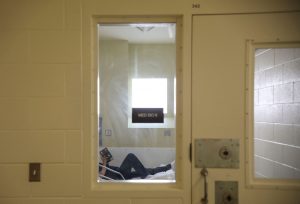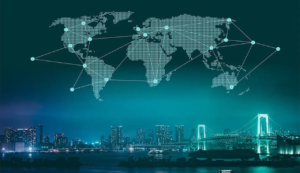On this one-year anniversary of the murder of George Floyd, many are assessing where we have come on racial disparities and injustice in America. On one hand, many White people have been engaged in protests, commissions, calls for reform, and changes in laws that have racist foundations. There has been action on a number of levels and a great deal of well-intentioned effort, but there is still little real change to show for it.
Many realize that real transformation faces a long, arduous path ahead. Even Asheville, where the city council pledged reparations quickly last summer for its Black community, has yet to actually allocate any fundingto that initiative. An AP article in late April pointed out that such local initiatives have stalled around the country.
In June 2020, Rep. Barbara Lee (D-CA) introduced H. Con. Res. 100, a bill to create a national Truth, Racial Healing and Transformation Commission. It now has 169 co-sponsors and has been introduced in the full House of Representatives. Sen Cory Booker (D-NJ) introduced companion legislation in the Senate, S. Con. Res. 6. It has 14 co-sponsors and was referred to the Senate Judiciary Committee in February. But with other priorities around vaccinations, the American Recovery Plan, and a pending infrastructure bill, neither the House nor Senate version has come up for a vote.
Too many people of all races are still unaware of our nation’s true history, and unaware of policies like redlining that denied Black and Brown residents the ability to grow wealth by buying houses in healthy areas likely to appreciate in value. Conservative state legislatures are arguing over what they call “critical race theory” and attempting to dictate how history should be taught to school children, thwarting attempts to introduce points of view from people of color, and striking any language which reveals how many of the country’s founders were also slave owners. This is exactly the wrong time to be moving backwards.
Even though Black Americans are 3 times more likely to die from asthmaas white Americans, due to a combination of poor access to quality healthcare and more exposure to pollution, a recent EDF poll shows that only 38% of Whites realize that Black communities are more exposed to pollution than White communities. This polling also reveals that 74% of American adults have never heard of redlining, or have heard of it but don’t know what it is. (EDF Poll, Oct 2020)
Even those who have heard of redlining and understand it are often defensive about changing policies to benefit those who have suffered from it. I hear this from many White residents in Charlotte, who are offended when told that they have white privilege, or that they – and their businesses – have benefited from an unequal system that allowed wealth to accumulate for some, but not others.
At a recent City Council’s meeting, in fact, Councilmember Driggs voiced this sentiment perfectly by saying, “What percentage of Charlotte today was here for redlining, which was made illegal 50 years ago? I don’t like to be characterized as a segregationist because I think there are values associated with single-family neighborhoods that need to be preserved.” Driggs said the prioritization of investment to underserved neighborhoods may be unconstitutional, adding that people in wealthy neighborhoods are concerned, “There go my sidewalks. They’re going to put who knows what in all these troubled communities and we won’t get sidewalks.” (QCNerve, May 25 newsletter)
Driggs’ comments show just how far we still have to go. People of wealth in Charlotte can worry about sidewalks, while people of color in poor communities live in food deserts, have no full-service grocery stores nearby, are energy burdened and often lack internet access, are breathing polluted air and suffering from asthma, and have been dying from COVID at much higher rates than wealthy White communities. These challenges are the product of centuries of segregation and unequal treatment. The need to use public money to care for low-income communities should be evident. Every major religion believes we should care for, even love, our neighbors. Giving back to the community, and seeking to right the wrongs of history, is not socialism.
There are many who believe, as I do, that racial healing and transformation within our community is indeed possible – with love, and a real desire to create what Martin Luther King called “the beloved community.” A group of us have been meeting in Charlotte for the past year, several times every week, to try to make real progress on racial disparities. We have called this the Reimagining America Project, and I co-chair this commission with Rev. Dr. Rodney Salder of Union Theological Seminary. Dr. Sadler and I met during the Moral Monday protests years ago. This is a bi-partisan, diverse commission, including the Hon. Shirley Fulton, Judge Lou Trosch, public defender Bob Ward, Pastor Brent Stone, Rev. Dr. Sheldon Shipman, Rabbi Judy Schindler, Joel Segal, and many more who believe that by hearing the stories of those impacted by a racist system, we can bring forward recommendations to transform the system to eliminate its racist underpinnings all together. We are careful to note that none of us present voted to redline neighborhoods, or to create the unequal system that we have, though some have been part of its continuation. We do not seek to cast blame, but rather to seek healing, reform, and systemic change.
Dr. Sadler has been the consistent convener for these meetings, which have addressed racial disparities in housing, healthcare, education, and criminal justice. He begins each hearing by noting that race is a social construct created to separate people, and it is not a biological or scientific term. The members of the Commission believe that with conscious intent and education, we can eliminate race as a dividing force in our society. The latest, full hearing can be viewed on the Project’s FB page.
To date, our project has been an entirely volunteer effort, and dozens have given thousands of hours to its mission and actions. It is a powerful initiative, and will soon begin the next phase of compiling lists of needed policy reforms and advocating for them. I invite any who read this column to join us in this journey. Over the coming weeks, I will write about some of the witness testimonies and the reforms they underscore. I hope you will join our efforts with the belief that we can work together to change the future, and that one day the horrendous murder of George Floyd will be a distant memory — and not a constantly recurring nightmare.




